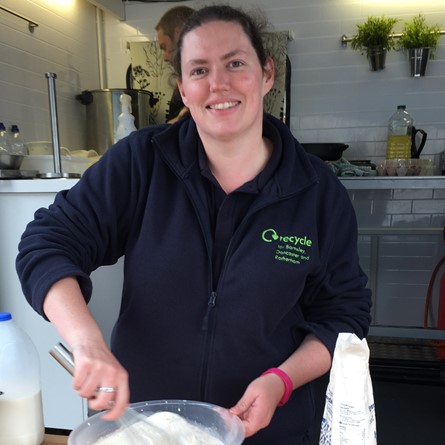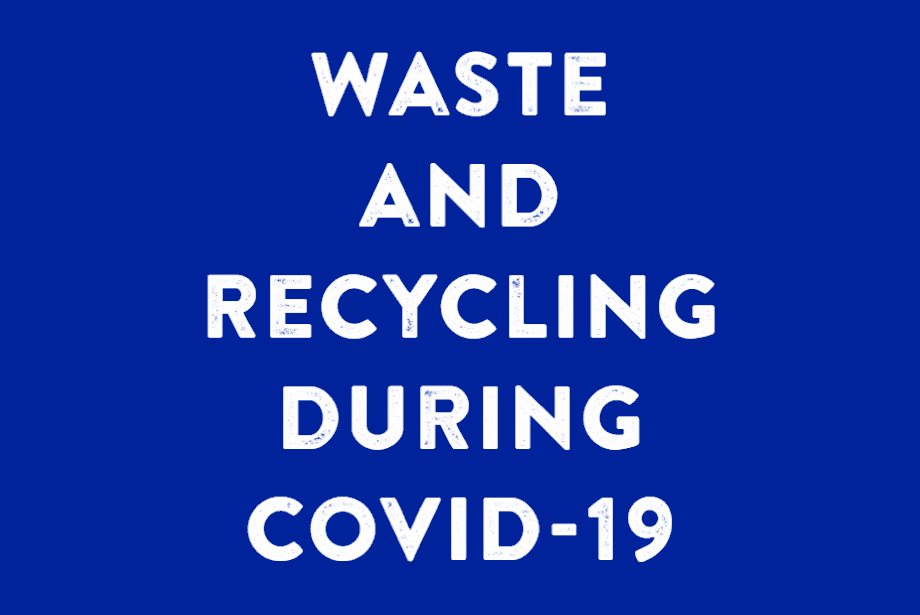With more of us staying at home this means more household waste and will put extra pressure on waste and recycling services that are also managing fluctuations in staff numbers due to the current outbreak.
Many Household Waste Recycling Centres are now closed. Staff shortages mean there are also changes to services like garden waste collections and bulky furniture collections.
This is a very challenging situation that is changing quickly and regularly. Services are reliant on all of us to help.
How can you help?
There are lots of things we can all do to help ensure that Councils can cope with the volume of waste and recycling being produced.
Check with your local Council regularly
Check your local council’s website, social media and the local press regularly for updates on types and frequencies of waste and recycling collections in your area including what can and can’t be recycled. As staff return to work following periods of isolation it may be possible for councils to reinstate services which have previously been suspended so please check regularly.
Check before trying to dispose of waste and recycling outside of the home
Many of the Household Waste Recycling Centres (HWRCs) are currently closed to prevent people making unnecessary journeys. Charity shops are closed along with most non-food retail outlets and few clothes banks are being emptied. Please do not leave material outside charity shops, by clothes banks or outside HWRCs. Fly-tipping remains illegal.
Reducing waste, recycling and food waste
A staggering 20% of the food we buy is wasted before it has been eaten or drunk. Now, more than ever, it is important to reduce food waste. By planning meals, using shopping lists, understanding date labels, storing food safely and according to instructions, only cooking what we need and using up leftovers we can all help to reduce food waste. For more hints, tips and ideas visit www.lovefoodhatewaste.com
The more we are able to reduce waste and recycling the greater difference we can make. Reducing waste will help the Council to maintain a good waste and recycling service for everyone.
*UPDATE* As we approach the winter months, some collections will be starting to suspend/slow down and with the added pressure of COVID-19, may do so earlier than expected.Composting at home is a great way to transform your garden waste into nutrient rich plant food. Here are some easy ways you can start:
Re-using at home
There are many everyday household items that we can re-use at home instead of throwing away. Using plastic takeaway tubs to freeze leftovers or store opened foods in the fridge, using empty sauce jars or large yoghurt pots as penholders for newly set-up working from home /home schooling desks or cutting up old sheets or towels to use as dusters and cleaning cloths. If the kids are creative you can re-use yoghurt pots as water and paint pots as well as re-using scrap paper for their masterpieces.
Click here for our top tips on re-use.
Recycling at home
To make sure you can fit all of your recycling in your bin please flatten cardboard boxes and cut them down to fit inside the bin, rinse and squash plastic bottles, rinse glass jars etc and, where safe, crush cans to fit as much as possible in the bin.
If you’re in self-isolation
If you are unwell and self-isolating all personal waste such as tissues and other potentially infected items such as cleaning cloths should be double bagged and set aside for at least 72 hours (3 days) before they are put into your general waste bin. More information about this can be found on the Public Health England website www.gov.uk/phe
Avoid making extra waste
Being at home it may be hard to resist the temptation to have a clear-out but this will create more waste and recycling to be collected putting extra pressure on waste collections. If you can’t resist the urge to have a sort out make sure you bag up items and hang onto them until things return to normal. If you’re sorting out the wardrobe you could hang items you intend to keep at one end and those you plan to get rid of at the other. If you do need to get rid of large items such as mattresses some bulky collection services are still running but may change regularly.
Avoid bonfires and burning waste at home
Burning waste creates air pollution that could harm people near-by with existing breathing difficulties or those caused by COVID-19. There is also the risk of fires getting out of control and putting additional pressure on the Emergency Services.
Helping your collection crews
You can help collection crews by continuing to wash hands regularly, keeping up good hygiene when handling waste and recycling and maintaining social distancing while collection crews are working in your area.
Make sure bins are put out for collection where they are clearly visible the evening before the scheduled collection with handles towards the road. Clean bin handles with disinfectant before and after collection to prevent the transfer of germs and ensure that any wipes, cloths and gloves used for cleaning are put in the general waste.
If your Council can’t collect your recycling
If the Council are forced to suspend recycling collections please store recycling safely until it can be collected. Paper and cardboard should be kept dry and away from any potential ignition sources.
The Councils ability to maintain collections throughout the COVID-19 crisis may change. Keep checking your website for the most up-to-date details.






